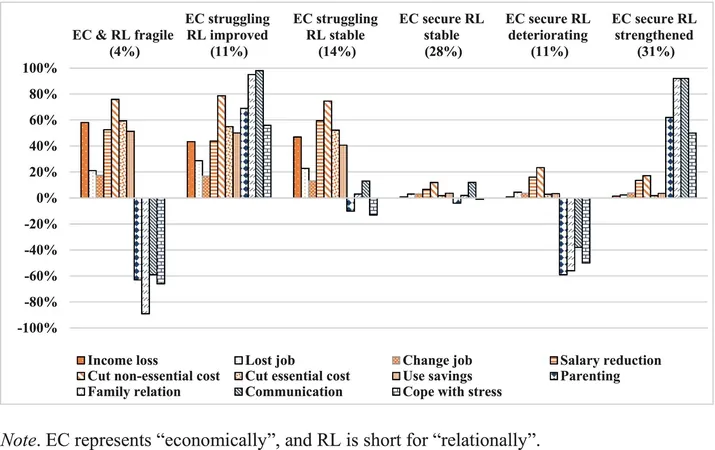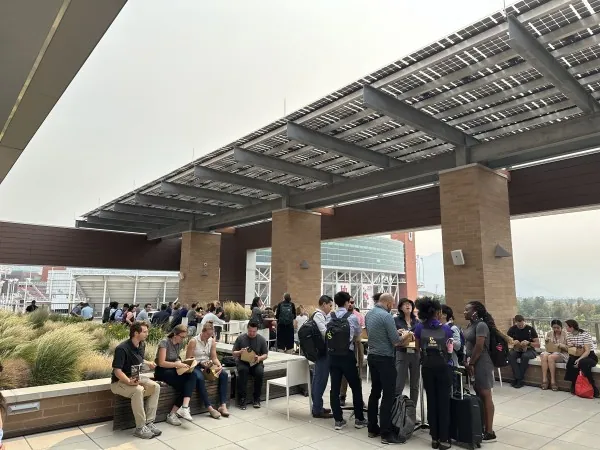
How Singaporean Families Thrived Amidst the Pandemic: A Deep Dive into Resilience
2024-10-07
Author: Daniel
Introduction
A groundbreaking study from the National University of Singapore’s Yong Loo Lin School of Medicine has uncovered remarkable insights into how Singaporean families with young children demonstrated resilience during the COVID-19 pandemic. Published in the Journal of Marriage and Family, the study, titled "COVID-19 experiences and family resilience: A latent class analysis," sheds light on the adaptability of these families amidst unprecedented challenges.
Study Overview
Led by Prof. Jean Yeung Wei-Jun and Dr. Chen Xuejiao, the research analyzed data from 2,818 households before and during the pandemic, revealing six unique family groups categorized by their economic and relational resilience. This analysis utilized data from the Singapore Longitudinal Early Development Study (SG-LEADS), which spans two waves of data collection: one in 2018-2019, prior to the pandemic, and the second in 2021, during its peak.
Key Findings
The study's findings are striking. A considerable 31% of families were classified as "economically secure and relationally strengthened," indicating a notable improvement in family relationships despite the stressors of the pandemic. Another 28% maintained their status as "economically secure and relationally stable," reflecting continuity in their pre-pandemic family dynamics. Interestingly, 11% of families, though economically struggling, reported improved relational dynamics, showcasing the strength of family bonds in tough times.
On the flip side, some groups faced significant challenges. 11% of families were categorized as "economically secure but relationally deteriorating," where financial stability was not enough to prevent the breakdown of family relationships. Meanwhile, 4% were found to be "economically and relationally fragile," grappling with both financial hardships and strained familial ties.
Resilience Factors
The research emphasizes that families with robust socioeconomic resources prior to the pandemic were better equipped to handle economic stressors, while strong relational factors—such as high maternal self-efficacy and quality family time—correlated with better relational resilience. Additionally, the crucial roles of government and community support were highlighted as lifelines for economically disadvantaged families during this crisis.
Summary of Findings
Key findings reveal that: - 42% of families successfully maintained their pre-pandemic dynamics. - 44% of participants noted strengthened relationships within their families, despite varied economic challenges. - Access to multilevel resources—including psychological strengths and community support—was linked to better resilience. - Mothers with high self-efficacy positively influenced family dynamics, while work-life conflict tended to strain relationships.
Moreover, families residing in supportive neighborhoods fared better, reinforcing the significance of community cohesion in maintaining family well-being under stress. Community and government support were vital for less economically stable families, illustrating essential collaborative efforts during crises like COVID-19.
Conclusion
Prof. Jean Yeung remarked, "Our findings express that family resilience is not a one-size-fits-all; it's shaped by a combination of economic, psychological, and social factors. Cultivating individual and public resources is vital for enabling families to adapt and thrive during challenging times."
In a post-pandemic world, these insights provide a critical foundation for shaping policies and intervention programs aimed at fostering family resilience. As society continues to navigate social inequalities, the findings from this study underscore the need for holistic support systems to strengthen families, ensuring they can withstand future adversities.
This research encapsulates a vital message for policymakers, community leaders, and families alike: resilience can be nurtured through resource mobilization and community support, helping families flourish even in the most trying of times.




 Brasil (PT)
Brasil (PT)
 Canada (EN)
Canada (EN)
 Chile (ES)
Chile (ES)
 España (ES)
España (ES)
 France (FR)
France (FR)
 Hong Kong (EN)
Hong Kong (EN)
 Italia (IT)
Italia (IT)
 日本 (JA)
日本 (JA)
 Magyarország (HU)
Magyarország (HU)
 Norge (NO)
Norge (NO)
 Polska (PL)
Polska (PL)
 Schweiz (DE)
Schweiz (DE)
 Singapore (EN)
Singapore (EN)
 Sverige (SV)
Sverige (SV)
 Suomi (FI)
Suomi (FI)
 Türkiye (TR)
Türkiye (TR)